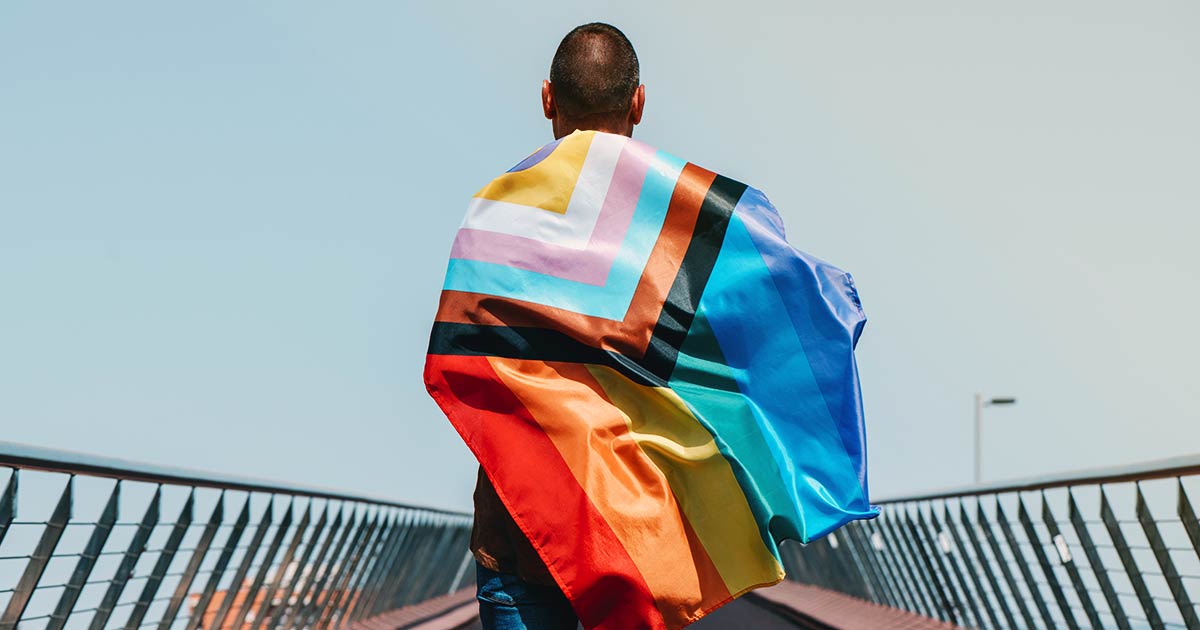Beyond Borders: LGBTQ+ Asylum Seekers in SA

South Africa is often seen as a safe haven for many African LGBTQ+ asylum seekers but the reality is usually far from ideal.
South Africa is often celebrated for its progressive stance on LGBTQ+ rights, particularly as the first African nation to extend refugee protection to the LGBTQ+ community. However, the promise of freedom for LGBTQ+ individuals seeking asylum in the Rainbow Nation has yet to fully materialise.
A recent study has shed light on the challenges faced by LGBTQ+ asylum seekers and migrants in South Africa, making an important contribution to our understanding of this under-researched and diverse population.
Homophobia, the fear and hatred of LGBTQ+ people, is of major concern in Africa. Here, many factors like history, culture, religion, and politics make it tough for LGBTQ+ individuals. Some countries still have old laws that make it illegal to be gay, leading to unfair arrests and jail time.
Some African countries facing LGBTQ+ challenges:
- Nigeria: Being gay can mean 14 years in prison here. A law called the Same-Sex Marriage Prohibition Act makes it even harder for LGBTQ+ folks.
- Uganda: Uganda’s recently enacted Anti-Homosexuality Act allows for the death penalty for “aggravated homosexuality.”
- Tanzania: This country is cracking down on LGBTQ+ rights, going after activists and groups helping these communities.
- Ghana: Ghana criminalises same-sex relationships, causing LGBTQ+ people to face discrimination, bullying, and violence.
- Egypt: “Debauchery” laws in Egypt target LGBTQ+ folks, leading to trouble with the law.
- Cameroon: Cameroon’s laws make being gay illegal, leading to many arrests.
- Zimbabwe: Homophobia and harsh laws put LGBTQ+ people at risk here.
- Senegal: Senegal’s laws against same-sex relationships lead to discrimination and bullying.
- Kenya: LGBTQ+ people face discrimination, bullying, and violence.
In Africa, the battle against homophobia rages on. LGBTQ+ activists and their allies are giving it their all. They’re out there fighting for new, more inclusive laws. They’re spreading the word about LGBTIQ+ rights, and they’re building bridges to acceptance through education and strong communities.
A New Era of Understanding
South Africa’s Refugees Act, established in 1998, recognised persecution based on gender and sexuality as legitimate grounds for asylum. While this was a significant leap forward in the fight for LGBTQ+ rights, the reality faced by those seeking refuge in South Africa is far from ideal. Research, conducted by dedicated scholars, activists, and human rights organisations, continues to highlight concerning trends in the asylum system.
A study, Vulnerability Amplified: Assessing the Needs Of LGBTI+ Refugees In South Africa, led by John Marnell, B Camminga, and Thea de Gruchy, uncovers critical insights into the experiences of LGBTQ+ migrants and asylum seekers, shedding light on the barriers they face in accessing legal protection, essential services, and employment. The research provides a foundation for advocacy work, focusing on the diverse demographic of this population, their unique challenges, and their experiences in South Africa.
Data Beyond Stereotypes
The study stands out because it doesn’t merely rely on qualitative data, but it presents quantitative information from a broad and diverse group. In collaboration with LGBTQ+ activists Thomars Shamuyarira, Masi Zhakata, and Anold Mulaisho, the research team collected data from 381 respondents through WhatsApp, creating the largest dataset of its kind in South Africa.
Some key findings are crucial to understanding the complexity of the situation. These findings are drawn from the diverse experiences of the LGBTQ+ migrants and asylum seekers:
1. Geographic Diversity: The study challenges stereotypes that assume LGBTQ+ individuals primarily settle in major cities. Respondents are spread across the country, far more widely than previously thought. The concentration of services in urban areas might need re-evaluation.
2. Diverse Language and Identity: A notable finding was the wide range of terms respondents used to describe their identities. Some terms commonly associated with gender were used to signal sexuality and vice versa. This indicates the need for more inclusive and flexible terminology in research and advocacy efforts.
3. Gender-Based Claims: While previous research indicated that transgender and gender-diverse individuals often claimed asylum based on sexual orientation, the current data suggests a shift toward gender identity or expression-based claims. How these claims are processed and their long-term impact is a subject of further study.
4. An Inaccessible System: Many respondents reported being undocumented, indicating a lack of information or confusion around asylum processes and categories. This highlights the need for programmes to better inform and support LGBTQ+ asylum seekers.
5. Limited Online Access: The study also revealed that some individuals could not participate due to limited online access, an important consideration for advocacy and outreach efforts that rely on digital channels.
Moving Forward with Hope
The study provides crucial data on an under-researched and often invisible population. The hope is that state agencies, human rights organisations, and advocates use these findings to develop sensitisation programmes and improve service delivery for LGBTQ+ asylum seekers and migrants.
Treating these individuals with dignity, respect, and compassion is not only a moral obligation but also a commitment to upholding the rights guaranteed by law. Only then will the dream of freedom become a reality for LGBTQ+ people who seek refuge in South Africa.
The road ahead might be challenging, but with data-driven insights and a commitment to change, South Africa can live up to its reputation as a beacon of hope for LGBTQ+ individuals seeking refuge and acceptance.
Leave a Reply